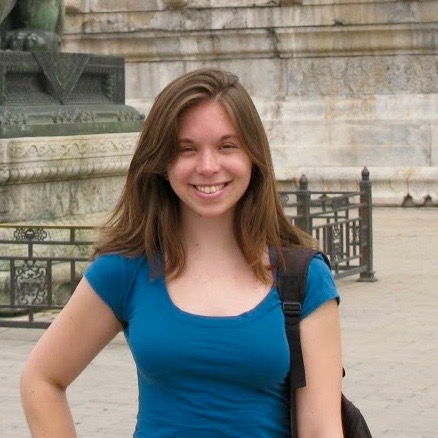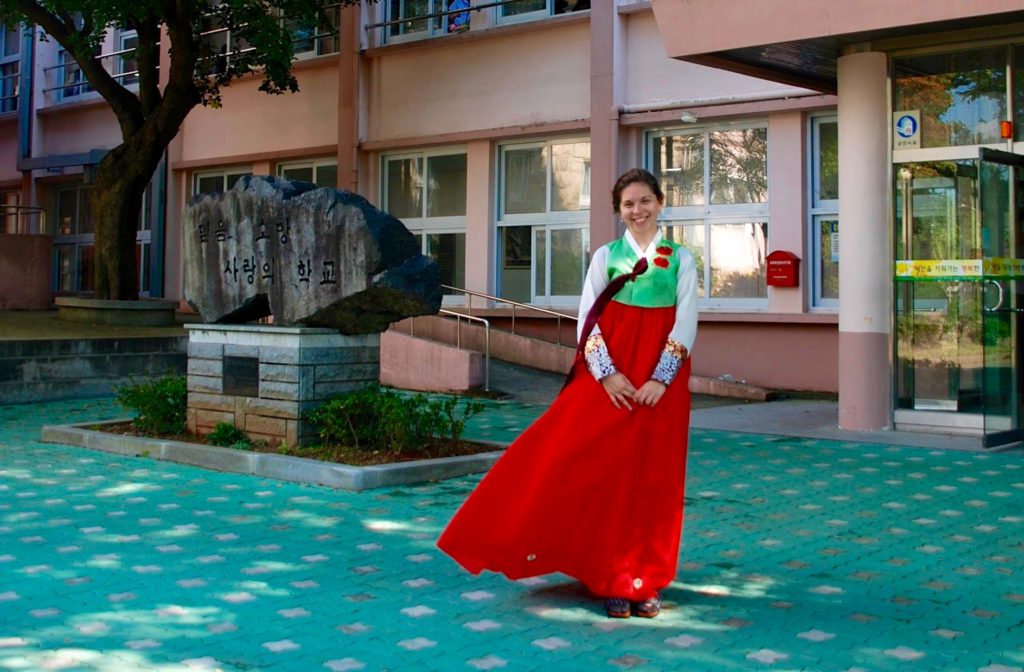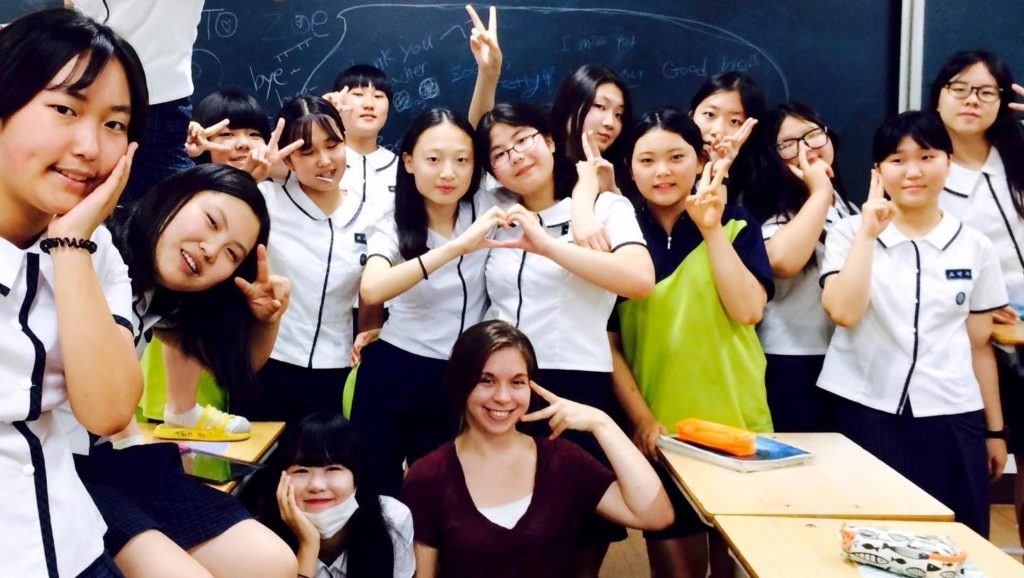Zoë Gioja, a National Fellowships Coordinator at the University of Notre Dame
If you are considering applying this fall for the Fulbright U.S. Student Program, which awards grants for study/research or English teaching abroad, you may be wondering where and how to seek application support. If you are currently enrolled in an undergraduate or graduate program at a U.S. college or university, you are required to apply through your university’s Fulbright Program Advisor (FPA), which you can look up here. If you are not currently enrolled, you may apply through your alma mater or apply “At-Large.” Note that each university has an internal application deadline for Fulbright applicants that is typically 4-6 weeks earlier than the Fulbright program’s final October deadline. Although the early deadlines might seem limiting, support from your university can be invaluable.
Zoë Gioja, a 2014-15 Fulbright ETA in South Korea and current National Fellowships Coordinator at the University of Notre Dame, shares her experiences preparing her successful Fulbright application and some of the benefits to working with your university’s Fulbright Program Advisor.
By Guest Author Zoë Gioja
It wasn’t until July before my senior year of college that I really started to think about what I wanted to do after graduation. I’d received emails from my college’s fellowships office about Fulbright. It sounded illustrious. Completely out of reach. No way was I “Fulbright material,” I thought; but it was exactly what I wanted. Why not give it a try?
The first step to apply through our fellowships office was to fill out a form. One question read something like this:
Q: What country(s) would you consider for your Fulbright?
My answer: Turkey, somewhere in Latin America, or South Korea
Clearly, I hadn’t figured things out. There was much work and soul-searching to be done. Why did I want to teach? Why in that specific country? Why was it essential that I go there, and how did it fit into my future plans? What were my future plans?
That’s where my college’s fellowships office came in.
The advisors at the office warned me that applying to this grant would be like taking an additional class. They were right. They could have called it, The Fulbright Application: Lifelong Skills for Applying to Just About Anything. It was a class in how to write a cover letter for a job, or a personal statement for graduate school. It was a crash course in how to speak cogently about your qualifications and goals, how to advocate for your skills and experience, and how to reflect on why you do what you do.
I probably wrote about twenty drafts, and revised substantially at least five times. I worked with and got to know two different fellowships advisors, hearing their stories and perspectives. I got to know other applicants who were going through the same process I was.
Most of all, applying to the Fulbright grant was an excuse to ask the big questions. It was the first time in a while that someone had sat me down and asked me: “Hey. Why do you want to do this?” Both my fellowship advisors and my professors challenged my intentions, asking me tough, discerning questions.
“You’re a history major – mostly European history,” one pointed out. “Why do you want to go to Korea?”
“You say a lot about wanting to teach the actual language,” another wrote in the margins of my drafts. “But what else will you teach them besides the language itself? Since you will be engaging in a cross-culture exchange, what would you like to offer as your part of that exchange?”
“Your essay describes both why you want to teach,” one noted, writing me comments over email, “and your interest in Korea – but what bridges these? And how will you continue to bring Korea into your life after you return?”
Through having to answer these key questions, I learned more about myself and my motivations. I thought more deeply and authentically about my application. And in many ways, it even changed my relationship to the grant itself: I kept asking myself these bigger questions, and let the answers evolve, even after I arrived.
The Fulbright application support you can receive through your university is invaluable. Here are a few possibilities of what your campus can offer:
- conversations that help you discern what grant is the best fit for you, decide on a country, and reflect on your options
- feedback on your essay drafts, which will teach you how to write essays like this for future job and graduate school applications
- a faculty campus committee that will review your application, interview you, and offer you feedback
- support from your campus’ writing center in crafting your essays
- peer review sessions
- “boot camps” on how to write the application essays
In the unlikely chance your university’s fellowships office does not assist with alumni applications, do your best to mimic the campus process by reaching out to people in your university and your network. For example:
- Seek help from the campus’ writing center. Ask if they have any tutors who are experienced with Fulbright applications.
- Search for examples of successful applications, either online or through your college or university.
- Use the Fulbright website – it’s a treasure trove – and find resources and watch Fulbright webinars through the site. Webinars are informative and easy to access year-round.
- Get in touch with Fulbright alums, either through the Grantee Directory on the Fulbright website, or through your university (if there have been previous recipients). Ask them for advice, or if they’d be willing to review your application, especially your essays. You can also use fulbridge.org to get in touch with former grantees.
- ProFellow also has a series of articles written by Fulbright alumni that provide Fulbright application tips and insights on the Fulbright experience in different countries. Also check out ProFellow’s upcoming live webinar workshops which will provide tips on developing a compelling personal statement and competitive project proposal.

© Victoria Johnson 2016, all rights reserved.

